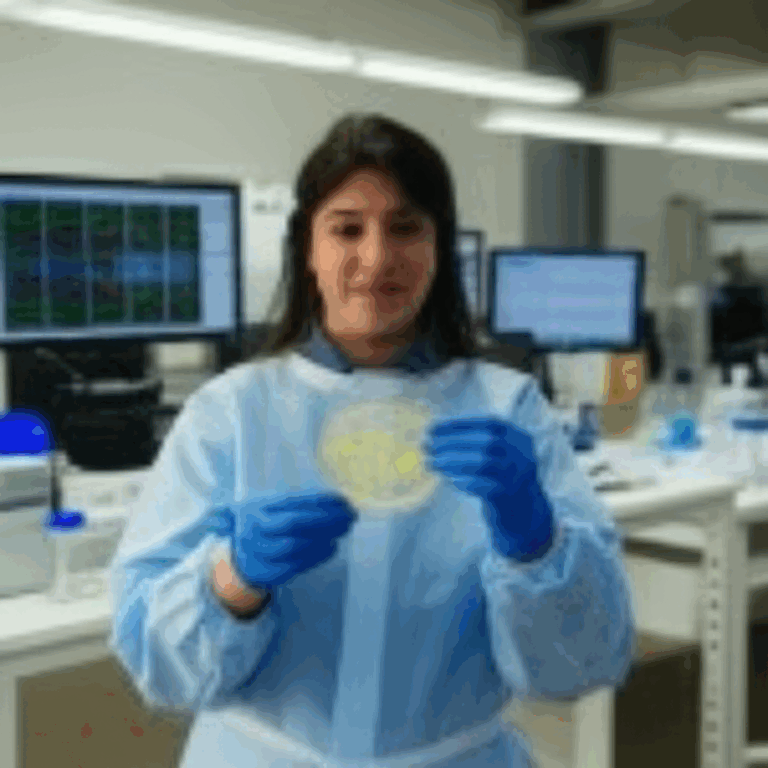As the global population ages, the quest for a longer, healthier life intensifies, with dietary choices emerging as a cornerstone of healthy aging. Far from merely extending lifespan, the right nutrition can significantly impact “healthspan”—the period of life spent in good health, free from chronic disease and cognitive decline. Recent studies and comprehensive reports highlight specific eating patterns, from the widely acclaimed Mediterranean and MIND diets to less beneficial habits, revealing their profound influence on our biological clock.

The Science of Diet and Biological Aging
Our bodies age not just chronologically, but biologically. This biological age is influenced by lifestyle factors, with diet playing a surprisingly major role, potentially even more so than genetics. Scientists use “epigenetic clocks,” which track DNA methylation (chemical changes to DNA), to measure the pace of biological aging. A slower epigenetic clock is associated with a reduced risk of age-related diseases and mortality.
The link between diet and aging largely revolves around its impact on fundamental cellular processes:
- Oxidative Stress: Unhealthy diets contribute to an imbalance between free radicals that damage cells and antioxidants that neutralize them, accelerating aging.
- Inflammation: Chronic low-grade inflammation, often fueled by poor dietary choices, is a key driver of age-related cellular damage and disease.
- Metabolic Health: Proper nutrition supports metabolic functions, preventing conditions like insulin resistance that are linked to cognitive decline.
- Telomere Length: These protective caps on DNA shorten with age. Healthy diets, particularly the Mediterranean, have been associated with longer telomeres, indicating a slower aging process.
- Gut Microbiota: A diet rich in fiber promotes a healthy gut microbiome, which in turn benefits the gut-brain axis and overall health in older individuals.

The Leading Diets for Healthy Aging
Two dietary patterns consistently rank at the top for promoting longevity and mitigating age-related decline: the Mediterranean diet and the MIND diet.
The Mediterranean Diet: A Timeless Blueprint for Longevity
Consistently hailed as a pinnacle of healthy eating, the Mediterranean diet has been ranked the No. 1 overall diet by U.S. News & World Report for several consecutive years, including 2024 and 2025. Its benefits are vast and well-documented.
What Defines the Mediterranean Diet?
This eating pattern is inspired by the traditional cuisines of countries bordering the Mediterranean Sea in the early 1960s, particularly Greece and Southern Italy. It emphasizes:
- High Consumption: Unrefined cereals, fruits, vegetables, legumes, nuts, and olive oil (as the primary fat source).
- Moderate Consumption: Dairy products (like cheese and yogurt), poultry, fish, and wine (typically one glass per day).
- Low Consumption: Red meat and processed foods.
How the Mediterranean Diet Supports Aging
Research links adherence to the Mediterranean diet with a plethora of health advantages:
- Reduced Chronic Disease Risk: It is associated with a lower risk of cardiovascular disease, type 2 diabetes, obesity, cancer, and neurodegenerative diseases. One landmark trial found that a Mediterranean diet rich in extra-virgin olive oil reduced the risk of major cardiovascular events by 31% in high-risk individuals.
- Slower Biological Aging: A 2023 clinical trial co-authored by Harvard T.H. Chan School of Public Health researchers found that eating a Mediterranean diet, particularly one rich in polyphenols (micronutrients in plant-based foods), was associated with slower biological aging, assessed by DNA methylation.
- Enhanced Longevity: Greater adherence in mid-life has been related to a 46% better chance of healthy aging, defined as living to 70 or older with no major physical or mental impairments.
The MIND Diet: Tailored for Brain Health
The MIND diet (Mediterranean-DASH Intervention for Neurodegenerative Delay) is a powerful hybrid diet specifically designed to support brain health and reduce the risk of cognitive decline. It selectively incorporates elements from both the Mediterranean and DASH (Dietary Approaches to Stop Hypertension) diets that have shown the most promise for neuroprotection.
Key Components of the MIND Diet
The MIND diet focuses on “brain-healthy” foods and limits “unhealthy” ones. Its core principles include:
- Emphasis on: Green leafy vegetables (at least one serving daily), other vegetables (two or more servings daily), berries (two or more servings weekly), nuts (five or more servings weekly), olive oil (daily), whole grains (three or more servings daily), fish/seafood (one or more servings weekly, especially fatty fish), beans (four or more servings weekly), and poultry (two or more servings weekly).
- Limitations on: Red meat (less than four times a week), butter and stick margarine, cheese, pastries and sweets, and fried or fast food.
MIND Diet’s Impact on Cognitive Aging
A new study from Columbia University found that adherence to a MIND diet was associated with a slower pace of biological aging and a reduced risk of dementia or dying. Participants who most closely followed a MIND diet had a slower biological aging rate. Another community-based study of older persons found that higher MIND diet scores were associated with a slower decline in global cognitive function, equivalent to being 7.5 years younger in age for those with the highest scores compared to the lowest. Studies have also shown a 53% lower rate of Alzheimer’s disease for those with the highest MIND diet scores.
Other Beneficial Dietary Patterns
While not as widely ranked as the top two, other dietary approaches contribute to healthy aging:
- DASH Diet: Primarily focused on lowering blood pressure, it shares many commonalities with the Mediterranean diet, emphasizing fruits, vegetables, whole grains, and lean proteins while limiting sodium.
- Plant-Based Diets: Generally, diets emphasizing plant-based foods are linked to a lower risk of chronic diseases and mortality, offering benefits for healthy aging.

The Diets Accelerating Aging
On the other end of the spectrum, certain dietary patterns and food groups are consistently linked to faster biological aging and increased disease risk. A 15-year study published in Nature Ageing, for instance, monitored approximately 2,500 elderly individuals and identified key foods accelerating dementia and chronic diseases.
The Culprits of Unhealthy Aging
- Processed and Red Meats: Consuming large quantities of processed meats like bacon and burgers, and red meat, has been shown to accelerate the progression of neurological and cardiac conditions.
- Fast Food and Sugary Drinks: Diets high in fast food and carbonated sugary beverages are directly associated with faster biological aging, even in young adults.
- Ultra-Processed Foods: These foods, often high in hydrogenated oils (trans fats), contribute to chronic inflammation and oxidative stress, speeding up cellular aging. A dietary pattern frequent in ultra-processed food is associated with an increased risk of frailty, a hallmark of unhealthy aging.
These unhealthy eating patterns contribute to conditions like cardiovascular disease, type 2 diabetes, obesity, cancer, and neurodegenerative diseases, diminishing both healthspan and lifespan.

Practical Takeaways for a Healthier You
The evidence overwhelmingly points to the power of diet in shaping our aging process. While genetics play a role, making conscious food choices offers a significant opportunity to promote healthy aging and maintain vitality.
To embark on a path toward healthier aging, consider incorporating the principles of the Mediterranean and MIND diets:
- Prioritize Plants: Make fruits, vegetables (especially leafy greens), whole grains, legumes, and nuts the foundation of your meals.
- Embrace Healthy Fats: Opt for olive oil as your primary cooking fat and include sources of omega-3 fatty acids like fatty fish and walnuts.
- Limit Processed Foods: Minimize your intake of fast food, processed meats, sugary beverages, and refined grains, which are detrimental to cellular health.
- Stay Hydrated: While not explicitly detailed in the studies above, water is crucial for overall cellular function.
- Mindful Eating: Focus on whole, unprocessed foods and aim for a balanced dietary pattern sustained over a lifetime.
By understanding the impact of various diets on biological aging and cognitive function, individuals can make informed choices to foster a future of healthy, vibrant years.







